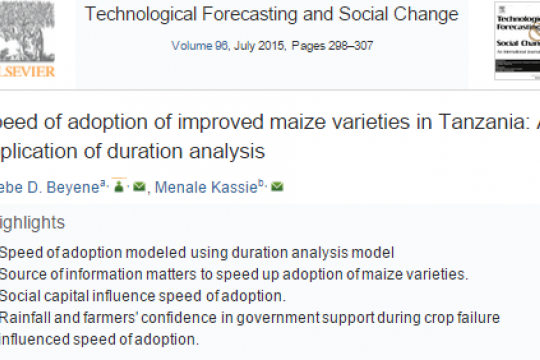Maize is a strategic commodity for improving food security and alleviating poverty in Tanzania, but its productivity remains low. The importance of improved maize varieties (IMVs) in increasing productivity is documented in existing literature. Previous adoption studies in Tanzania did not examine the factors that influence the speed/timing of adoption. This study examines the determinants of the speed of adoption of IMVs using a duration model and recently collected plot- and household-level data in rural Tanzania. The results highlight the importance of social capital and networks in speeding up the adoption of IMVs. Similarly, government extension workers as a main source of information have a positive effect on the speed of adoption. The regression results also suggest that rainfall and farmers' confidence in government support during crop failure speed up the adoption of IMVs. The findings imply that interventions that strengthen the role of extension services, rural institutions and networks can accelerate the adoption of IMVs by smallholder farmers in Tanzania.
Speed of adoption of improved maize varieties in Tanzania: An application of duration analysis
EfD Authors
Sustainable Development Goals


